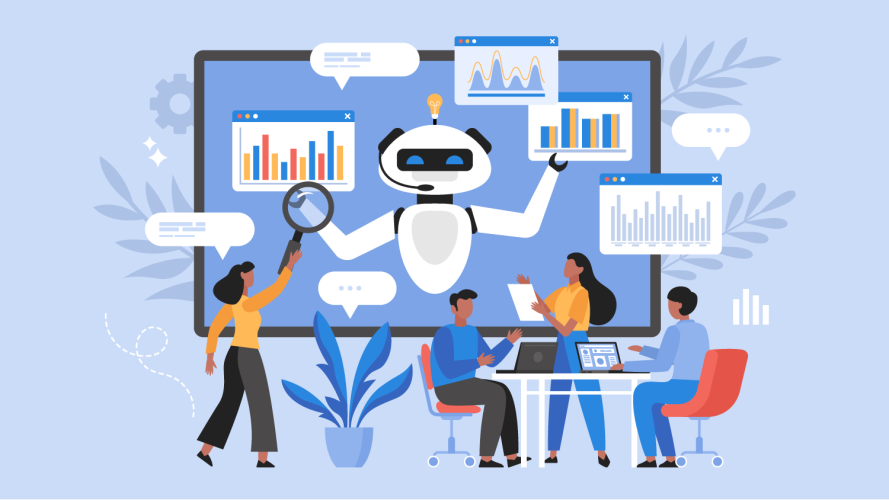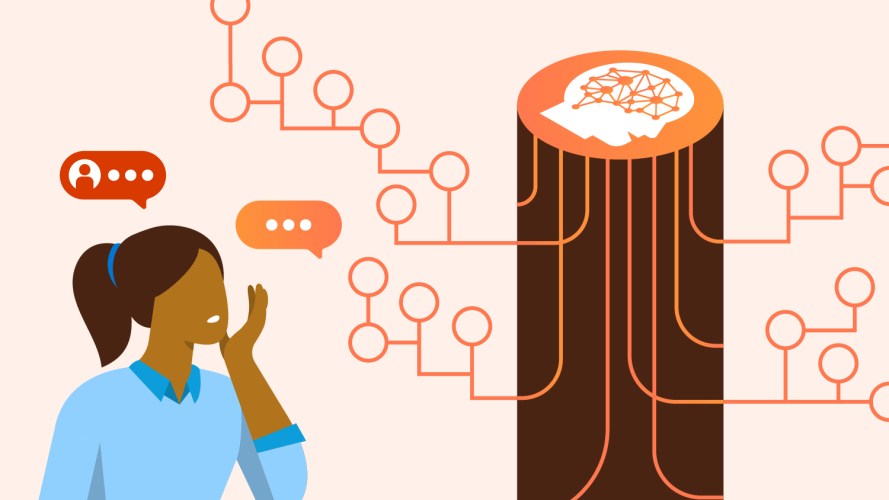AI Is Helping Teams Right Now: Being More Responsive Is Just the Beginning



AI is supporting businesses and driving growth in many ways. Creating intelligent experiences that empower both businesses and customers is critical during this time. Here are 6 ways AI can help your organization today.

Marco Casalaina
Artificial intelligence (AI) helps brands navigate and grow during COVID-19. As one of the product leaders of the Einstein team at Salesforce, I’ve seen customers do remarkable things with AI during this crisis, and use the new skills they learned to drive real change within their organizations.
To highlight these AI-powered successes, we hosted Learn AI with Salesforce: Skill Up on Building a Smarter Business. The virtual event brought together Salesforce product managers and leaders, and several of our Trailblazer customers, to discuss how to use AI and the Salesforce Platform to solve problems that matter to businesses right now.
You’d be surprised (we were!) how much we could cover in a mere hour and a half. Here are six key learnings you can use today to help your organization thrive now and in the future:
1. AI can help you deal with the enduring consequences of remote work
Our Chief Future Officer Peter Schwartz talked about scenario planning for getting people back to work. As the virus persists, so will the recession, that’s why we need to reimagine the next normal. With Work.com, we already help companies navigate the tricky business of reopening by providing resources around contact tracing, emergency response management, and important metrics they will need to monitor.
Tools developed before the pandemic, like telemedicine, were a good start, but now we’re going to need them on a different level. Whether it’s a digital assistant providing a doctor with a patient’s prescriptions, or tools to help customer service agents solve cases more easily with targeted recommendations, AI will be essential to how we deal with the enduring consequences of doing everything remotely, Schwartz explained.
“We think artificial intelligence embodied in many different ways is one of the most important tools we have to ensure what comes out of the pandemic leads us to a much better world,” Schwartz said.
And it’s not just about tomorrow. Businesses are already finding success using AI to adapt to shifting customer demand today:
- Reverie has pivoted its business of selling luxury sleep systems to providing adjustable bed bases to hospitals and making cloth masks in its linen factories. They turned to AI to score the leads and share the brand new context for their sales field to better engage all customers, increasing their direct-to-consumer (D2C) revenue by 100%.
- Sequoia Financial Group used AI to help their advisors transition to an at-home environment by scoring opportunities and automating next-best-action workflows to create targeted lists of customers. As a result, they saw a 233% increase in calls from prospects between February and March 2020.
- Sun Basket’s customer base for their healthy meal delivery service doubled in just six weeks and experienced a 50% increase in service cases during COVID-19. They were able to use their chatbot to answer more queries than ever before, like delivery address changes, menu and subscription options, promotions, and gifting. The satisfaction score from their chatbot consistently showed over 90%.
2. Bias in your data reflects bias in your business
Bias introduces errors in data and has no place in your AI project. Consider bias right from the start of your project, and keep working to remove it. Employees, customers, and other stakeholders need to trust that your AI is making an unbiased judgment. When you build an AI prediction, for example, review what the AI learned and look for unwanted bias — because bias in your data indicates bias in your business.
Bias lives in our data and business processes and permeates everything from loans and admissions, to hiring, promotions, and compensation, explained Ayori Selassie, product marketing manager and co-founder of BOLDForce, Salesforce’s Black Organization for Leadership and Development.
“In order to end racism, we must identify where it lives by using our data and then take steps to eliminate it,” she said. “Check your data y’all!”
3. “Data drift” will happen — plan for it
When changes happen in the world, the data drifts away from what it was before, explained Sarah Aerni, Salesforce’s senior director of machine learning and engineering. And when data changes — as it has significantly during this pandemic — so does your AI.
While AI systems like Einstein stay on top of the changes by continually relearning, there are a few best practices you should put in place to help your AI adapt to changing consumer behavior:
- Investigate how your models are changing. Are there new top indicators from last year to today?
- Monitor how your predictions are performing. This will tell you where to focus your attention and adjust your AI strategy.
- Apply a business process on top of your model. There’s no point in predicting the future if you can’t impact a specific business outcome.
4. AI is helping brands be more responsive
You shouldn’t need to be a data scientist to leverage the benefits of AI. New solutions with point and click tools empower users in every role to use AI so they can quickly address new and urgent challenges that arise. For example, we heard from several Trailblazers about how AI has helped their business.
Hornblower Cruises and Events implemented a chatbot, aptly named “Admiral Hornblower,” to help employees quickly answer pressing questions about the company’s response during COVID-19. They built and deployed the entire solution in three days. It now handles 83% of total chat engagement, allowing HR to prioritize issues that require the human touch and direct engagement.
“Use bots to handle your most redundant use cases,” said Arto Altincatal, marketing technology at Hornblower. “Then iterate with new functionality and process after you’ve received feedback from your end users.”
Haventree Bank’s Manager of Sales Operations Alex Westcott also turned to AI to manage through the current uncertainty. Einstein Prediction Builder helps the bank triage loans in the pipeline and get those borrowers that qualify across the finish line.
To build an accurate prediction, Westcott advised: “Know your data, understand the business problem you’re solving for, and be sure to use the data checker, which will save you a lot of time from backtracking and identifying gaps.”
5. Empathy is your customer service superpower
Right now, customers are going through endless hurdles, both financial and emotional. And empathy is a key factor in whether they will choose to stay or leave a business. Now more than ever, businesses need to arm employees with customer information that will help them be empathetic to the customer.
The good news, said Ceverly Strand, product marketing manager at Salesforce, is empathy and productivity can coexist with AI. For example, delivering insights to your sales teams about current events that might be affecting their accounts can help them better engage with their customers. They can offer products or services that might help them instead of focusing on the upsell conversation.
6. AI needs humans to succeed
For AI to succeed, humans still need to be involved. After all, it’s human plus machine, not one or the other.
For example, Samantha Blatt, product manager at Wheels Up, matched AI lead scoring with human feedback. She started with a small focus group and asked for their feedback on whether the score that Einstein provided was representative of the conversation the rep had with the prospect. This was an important step that allowed them to iterate on the model before rolling it out to a larger group. And it built trust.
AI is supporting businesses and driving growth in many ways. Creating intelligent experiences that empower both businesses and customers is critical during this time, and I continue to be inspired by our customers who are using AI to innovate through change.
Watch the Learn AI with Salesforce event replay to skill up on key AI concepts, use cases, and see hands-on demos.























